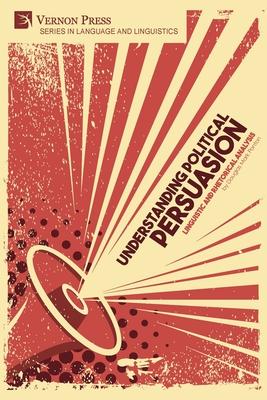This book builds on the consolidated research field of Political Discourse Analysis and attempts to provide an introduction suitable for adoption amongst a readership wishing to understand some of the principles underlying such research, and above all to appreciate how the tools of discourse analysis might be applied to actual texts. It summarises some of the work that has been done in this field by authorities such as Halliday, Fairclough, Wodak, Chilton, Van Dijk, Martin, Van Leeuwen and others to provide the would-be analyst with practical ideas for their own research. Naturally, this would not be the first time that such a handbook or introductory reference book has been proposed. Fairclough himself recently produced one; however, his work, simply entitled Political Discourse Analysis, inevitably includes theoretical insights from his own research. The beginning analyst can, at times, experience a sense of bewilderment at the mass of theoretical writing in linguistics, in the search for some practical, usable tools. I explain a variety of such tools, demonstrating their usefulness in application to the analysis of a number of political speeches, from different historical periods and diverse social contexts.
The author's hope is that would-be students of political rhetoric, of whatever level and from a variety of research areas, will be able to pick up this book and find tools and techniques that will assist them in actual work on texts. Naturally, it is also hoped that they will be inspired to follow up the suggestions for further reading which they will find in the bibliography.

Understanding Political Persuasion: Linguistic and Rhetorical Analysis
This book builds on the consolidated research field of Political Discourse Analysis and attempts to provide an introduction suitable for adoption amongst a readership wishing to understand some of the principles underlying such research, and above all to appreciate how the tools of discourse analysis might be applied to actual texts. It summarises some of the work that has been done in this field by authorities such as Halliday, Fairclough, Wodak, Chilton, Van Dijk, Martin, Van Leeuwen and others to provide the would-be analyst with practical ideas for their own research. Naturally, this would not be the first time that such a handbook or introductory reference book has been proposed. Fairclough himself recently produced one; however, his work, simply entitled Political Discourse Analysis, inevitably includes theoretical insights from his own research. The beginning analyst can, at times, experience a sense of bewilderment at the mass of theoretical writing in linguistics, in the search for some practical, usable tools. I explain a variety of such tools, demonstrating their usefulness in application to the analysis of a number of political speeches, from different historical periods and diverse social contexts.
The author's hope is that would-be students of political rhetoric, of whatever level and from a variety of research areas, will be able to pick up this book and find tools and techniques that will assist them in actual work on texts. Naturally, it is also hoped that they will be inspired to follow up the suggestions for further reading which they will find in the bibliography.